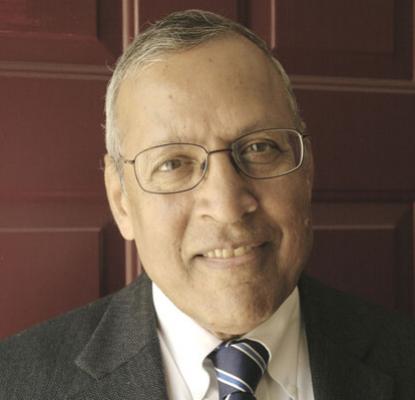BP Agrawal
Dr. BP Agrawal, a visionary social entrepreneur, combines his business insight with pioneering technologies to uncover innovative approaches to solve problems for the world’s vulnerable populations. For these inventions and their potential to improve the global public health system, he has won the 2010 $100,000 Lemelson-MIT Award for Sustainability.
Raised in a small farming village in Rajasthan, India, Agrawal’s parents encouraged him to study science and technology from an early age. He went on to receive a degree in Control Systems at the Birla Institute of Technology and Science in India and later earned his PhD in Engineering Science from the University of South Florida. Agrawal also completed a Management Executive Education Program at the Massachusetts Institute of Technology’s Sloan School of Management.
For 20 years, Agrawal led research and development at Fortune 100 companies including General Dynamics, ITT, GTE, and Hughes helping take new technologies successfully from lab to marketplace. He also acted as Managing Director for Vecna Technologies. During his time in the private sector, he received invention patents for single-bit voice processing that ushered the digital revolution, an echo canceller that enabled voice traffic over satellite, and self-healing modems. He founded Information Gateways, a voice processing company, precursor of the voicemail and call center boom, and IU Bit, a health informatics venture.
Agrawal transitioned from the corporate world to the non-profit world in 2003; in 2006, his rainwater harvesting system, Aakash Ganga, or River from Sky, won a World Bank Development Marketplace Award for an innovative approach to development challenges surrounding clean water in India. Aakash Ganga collects water from rooftops which is channeled through pipes and stored in a network of underground reservoirs, providing enough water for an entire village for a year. To date, it has helped 10,000 villagers in drought-prone regions gain access to clean water. Aakash Ganga is now being considered for large-scale implementation by the government of India. These accomplishments led Agrawal to found Sustainable Innovations (SI) in 2007. SI is a non-profit dedicated to building self-sustainable enterprises, with a focus on engaging young entrepreneurs in culturally and economically viable ventures.
Another award-winning development is Agrawal’s kiosk-based health “clinics,” Arogya Ghar, or Clinics for Mass Care, created with entrepreneur Atual Jain, founder and CEO of TEOCO, which won a second World Bank Development Marketplace Award in 2007. The clinics, run by high school educated young women, are inexpensive and have the ability to alleviate the shortage of trained medical staff and improve standardized treatment protocols for common ailments and preventable diseases in India. Agrawal’s team is currently seeking collaboration with USAID, the World Health Organization, UNICEF and social investors to scale up to 50 villages by 2012.
Agrawal previously acted as Associate Editor of IEEE Transactions on Signal Processing and on Communications, where he published more than 30 papers and served as a commercial reviewer of Small Business Innovative Research programs for the National Science Foundation. He is also a frequent speaker on a Gandhian approach to sustainability; he has presented to the United Nations Development Program, US and European Universities, national laboratories in Asia, and corporate research centers.


